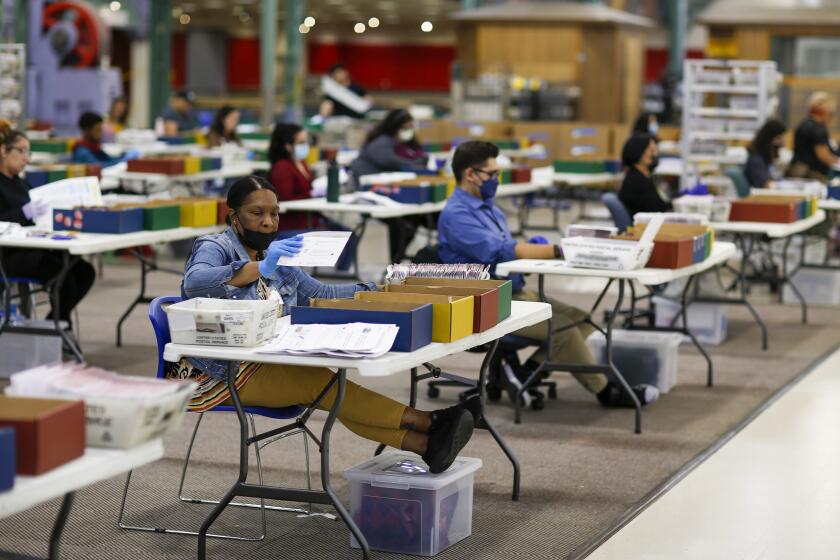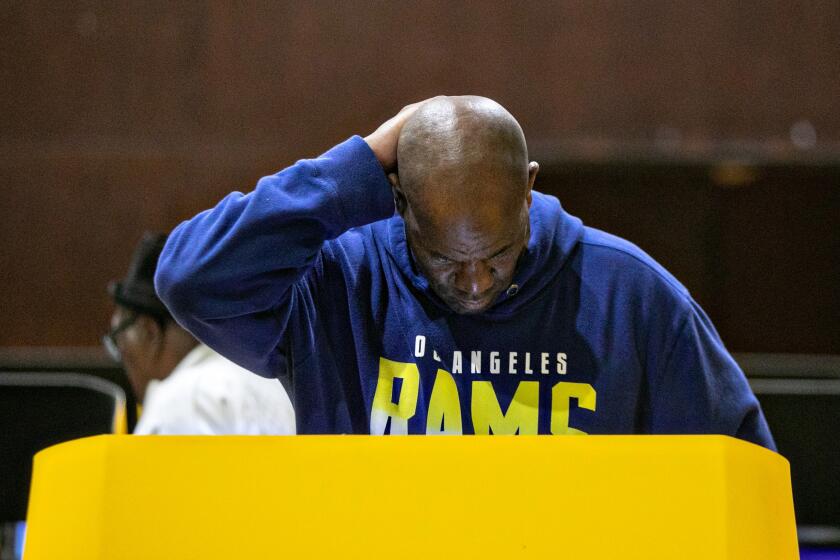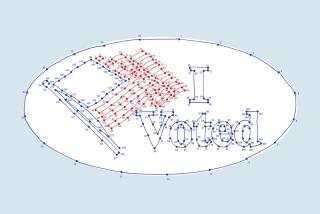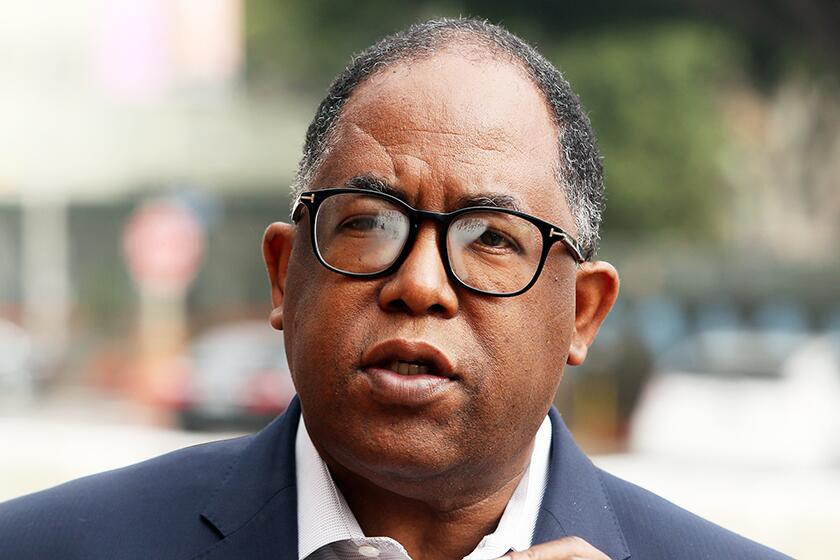Q&A: What to expect when you’re expecting election results

If Angelenos learned one thing from the June primary, it’s that early results on election night may not be indicative of ultimate vote counts. And final results could take days or weeks in close races.
Election night uncertainty is particularly acute in California, where a 2021 law made the pandemic-inspired shift to universal vote-by-mail permanent.
That shift fundamentally altered participation patterns, with voting beginning weeks before “election day” and ballot tabulation extending for weeks afterward.
“We no longer have election night. We have election season,” said Mindy Romero, a political sociologist and director of the USC Center for Inclusive Democracy.
Why will some races not have definitive results on election night?
Californians used to largely vote in person on election day. Now, the vast majority submit vote-by-mail ballots.
Because mail ballots take significantly longer to process, a large crush of people voting by mail on or just before election day creates what California Voter Foundation President Kim Alexander described as “‘the pig in the python phenomenon’ — where you just have this giant wad of ballots moving through the process.”
The overwhelming shift to vote-by-mail ballots fundamentally altered how Californians participate in elections. Ballot tabulation can extend for weeks afterward.
Ballots postmarked by election day are also accepted for up to seven days in California. That means the total number of ballots cast won’t be certain until well into next week, making it difficult for experts to gauge how much results may shift in the days immediately after the election.
Do lengthy vote counts or shifting results indicate a problem?
In a word, no.
Experts and election officials stress that California’s comparatively slow vote counts are a feature of a working democratic system, not a bug.
After a two-decade push to provide more options and protections, it’s easier to vote in California than almost anywhere in the nation. But some of those elements create more work for election officials on the back end.
For instance, California law allows eligible residents who missed prior deadlines to conditionally register to vote and cast a ballot on election day. But county elections officials need to complete the voter registration verification process for those ballots before they can be processed and counted.
Voters will pick a new mayor and face generational and ideological choices for other key races that could bring major changes at City Hall.
“The reason we take so long is we’re verifying all the ballots and making sure only valid ballots are being counted,” Alexander said. “So it’s a function of election security — the very election security people who criticize slow vote counts are demanding.”
Romero, the political sociologist, cautioned that results can — and likely will — shift in a number of races in the days to come.
When people hear one thing and then it seems to change, “they think something funny has happened or fishy has happened,” but such fluctuations are normal when votes are being counted, Romero said.
Will there be any definitive results on election night?
Yes. The overwhelming registration advantage that Democrats hold in California dictates that most party-line statewide races are essentially noncompetitive, making some results easy to forecast before all ballots have been counted. Gov. Gavin Newsom’s successful reelection bid is a foregone conclusion, and Sen. Alex Padilla — whose name appears twice on the ballot — is expected to handily defeat his opponent in both races.
Experts say that most of the state propositions will also likely see clear winners or losers Tuesday night.
But final results may take days or weeks in other high-profile races, including a handful of nail-biter congressional contests around the state and a number of competitive Democrat-on-Democrat races in Los Angeles city and county, such as the hotly contested Los Angeles mayoral race.
The L.A. Times’ editorial board endorsements for statewide ballot measures, elected offices in Los Angeles city and county, L.A. Unified School District board, L.A. county superior court, statewide offices, the state Legislature and U.S. House and Senate seats.
When will the first results show up in L.A. County?
The much-anticipated first wave of results in Los Angeles will likely be released around 8:30 or 8:45 p.m. on Tuesday, according to Los Angeles County registrar-recorder spokesperson Mike Sanchez. That segment will include only mail-in ballots received before election day.
The next drop — likely to come in the 9 p.m. hour — will add results from early in-person ballots cast at county vote centers.
After those first two drops, there will be “continuous and reoccurring updates throughout the night” as election officials tabulate votes cast in-person on election day, Sanchez said.
Those drops will likely continue into the wee hours Wednesday morning. Prepare for a long gap in new results after that, with the first post-election day update posted Friday.
Sometime between Wednesday and Friday, county election officials will also likely release an estimated number of outstanding ballots, Sanchez said.
Voters across Southern California braved the rain Tuesday to cast their ballots
That number should give Angelenos a better sense of how much results could swing. But beware — that figure will include only the number of ballots currently in their posession. Because ballots postmarked by election day are accepted for seven days, the total number of outstanding ballots will continue to shift through next week.
After election week, new results will continue to be released on a set schedule, with numbers updated every Tuesday and Friday, Sanchez said.
The county registrar-recorder’s office is scheduled to certify the final results Dec. 5.
Later results swung toward progressive candidates in the primary. Will that happen again?
That late-breaking blue shift in June was unique to L.A. — in quite a few other parts of the state, results actually turned more conservative as successive waves of ballots were counted, data expert and Democratic strategist Paul Mitchell said.
He hypothesized that the mayoral primary drove L.A. voting behavior in June: Rick Caruso was the clear choice in his political lane, whereas many progressive voters held onto their ballots as they decided between Rep. Karen Bass and other left-leaning candidates such as Kevin de León or Gina Viola.
There’s no reason to think the general election results will follow the same pattern, said Mitchell, who speculated that later results could even favor Caruso.
But given the level of variables at play, it’s very difficult to predict how the shifts in results will play out as ballots are tabulated.
Will The Times ‘call’ races?
The Times does not make calls in individual races. The newspaper will rely on the Associated Press — which is considered the gold standard for calling races — for decisions in all national and state races, as well as the Los Angeles County sheriff’s race and Los Angeles mayoral race.
On our website, we will have live results that will be updated with the latest totals in local races as new information is released by the county.
More to Read
Sign up for Essential California
The most important California stories and recommendations in your inbox every morning.
You may occasionally receive promotional content from the Los Angeles Times.
















